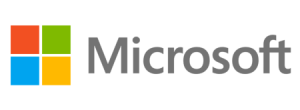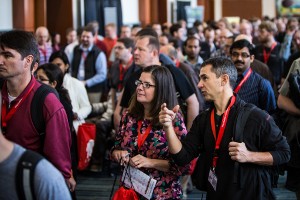FOSS Week in Review
Larry’s taking a much deserved day off, so I got elected to do this Week in Review. Glad to be back in the saddle.
Here’s hoping that all in the U.S. had an enjoyable Thanksgiving and that those of you who don’t live here managed to make it through all of the online articles on our quaint little holiday. As always, one thing leads to another. In this case, giving thanks for what we have morphs into the great Christmas shopping race, in which we make a grab for stuff we don’t yet own.
Meanwhile, back at the ranch…
Google and the EU
 While we in the States were dealing with family and turkey, the EU was busy working on preparing Google’s head for the platter. The European Parliament yesterday passed by a wide margin a non-binding resolution urging anti-trust regulators to break up the company. For those keeping score, the final vote was 384 yeas and 174 nays.
While we in the States were dealing with family and turkey, the EU was busy working on preparing Google’s head for the platter. The European Parliament yesterday passed by a wide margin a non-binding resolution urging anti-trust regulators to break up the company. For those keeping score, the final vote was 384 yeas and 174 nays.
Yesterday also saw France and Germany seeking a review, from the European Competition Commission, of the EU’s rules to ensure that international Internet companies could be targeted in the olde world.
Google has been tangling with our friends across the pond since at least 2010 on a host of subjects, which include privacy issues, “right to be forgotten” rules, copyrights, tax questions and more. The resolution didn’t mention Google by name, but asked for the Commission to consider proposals to separate search engines from their other services.
Christine Hall has been a journalist since 1971. In 2001, she began writing a weekly consumer computer column and started covering Linux and FOSS in 2002 after making the switch to GNU/Linux. Follow her on Twitter: @BrideOfLinux



 A week ago, in an attempt to make up for this projected loss of revenue, Mozilla began displaying advertising tiles in new tab pages on Firefox in newer versions of the browser. The first two sponsors, according to a
A week ago, in an attempt to make up for this projected loss of revenue, Mozilla began displaying advertising tiles in new tab pages on Firefox in newer versions of the browser. The first two sponsors, according to a 




 Let me be clear, for those GNOMEistas who might just have their proverbial knickers in a bunch: GNOME has been a remarkable FOSS citizen providing a better-than-adequate desktop environment for many FOSS users, perhaps even a majority of FOSS users. I just don’t happen to be one of them. Further, I will say this for GNOME: Unity should be more like GNOME. Compliment? You decide.
Let me be clear, for those GNOMEistas who might just have their proverbial knickers in a bunch: GNOME has been a remarkable FOSS citizen providing a better-than-adequate desktop environment for many FOSS users, perhaps even a majority of FOSS users. I just don’t happen to be one of them. Further, I will say this for GNOME: Unity should be more like GNOME. Compliment? You decide.



